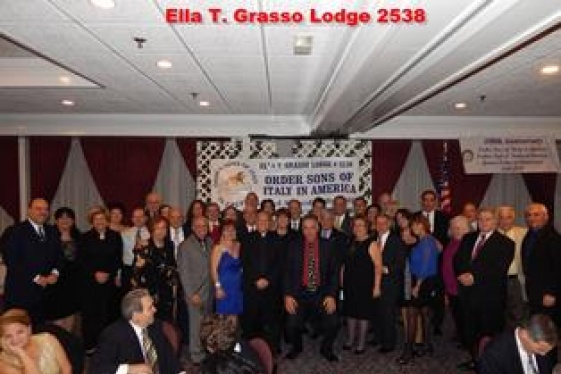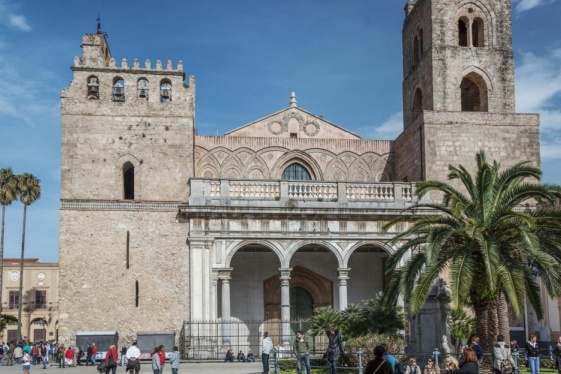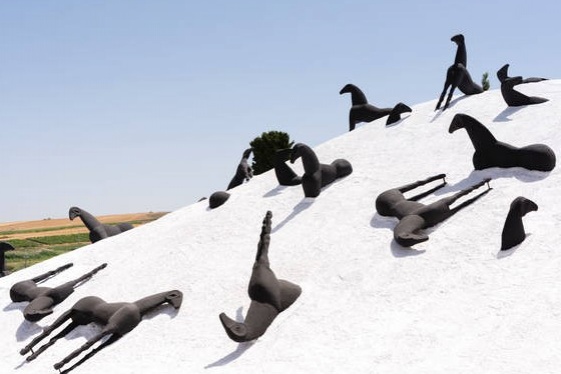

WTI Magazine #71 2015 October, 30
Author : Elda Buonanno Foley Translation by:
In a recent conference at the prestigious George Washington University, I was approached by a colleague of mine who teaches Italian language and culture in another college in USA and I was asked, how do I answer questions by the students that relate to the concept of the Mafia and the stereotype that all people from the south of Italy are affiliated in one way or another to it. I pondered on my answer and I suggested to my colleague to address the stereotype from an historical and anthropological perspective, not to mention a social and cultural one. Here is how I address people when they "see" the southern Italians as all being "Mafiosi" and Padrini.
Firstly, we need to approach the linguistic meaning of Mafia and Mafioso. Mafia is a criminal organization that has its roots in the 19th century and maybe even earlier than that. The term was born in Sicily and it was used for the first time in a drama written, in 1863, by Giuseppe Rizzotto and Gaetano Mosca "I Mafiusi de la Vicaria" in which the "mafioso" was portrayed as the iconic honorable man who was fighting against the corrupt institutions for the good and the welfare of the mob. The images of these "brave men" who would rise to challenge the institutions in the name of freedom, equal rights and distribution of wealth, have dramatically changed in the passing centuries with all that it entails, what it means and its objectives.
The Mafia, as a broad concept born in Sicily, "immigrated" to USA within the bigger waves of immigrants that started crowding and working, not to mention, putting up the biggest American dreams in the early 1900s. The original sense of "protecting families", older people and the weak by any means, slowly merged into the modern new way of living coupled with the desperate search for stability and creed for power.
There is no doubt that today, the means of the "organized criminality" have reached a sophistication and a nature beyond the original and anthropological sense of protecting the bond and the family. Not to mention that the expression itself indicates "criminality" as a whole (think of the Chinese Mafia, the Russian Mafia, and so forth). However, it would be greatly reducing and, unfair (to use a very mild term) to see all the "meridionali" as Mafiosi.
There is certainly a stronger sense of closure within the family, a sense of belonging to one's own propriety and protecting if not enhancing wealth: however, there are so many real and honorable people in the South of Italy that work legally and "healthy" to make Italy the beautiful country it is, that it would be insulting, uneducated and incorrect to see all of them as one single "defected group".
In sum, to our students who desire to understand the Italian stereotypes, we can easily answer that the Mafia, as a criminal concept and now extremely sophisticated group, has ancient roots that date back the archaic ties with the land and its main features. In its modern and altered, if not violent nature, Mafia has ties all over the society (think of episodes of public bribery, money laundry and so forth): however, this is not an Italian phenomenon but rather an unfortunate reality extremely widespread all over the human society and direct result of the modern times. Italian and global!
You may be interested
-
Davide Gambino è il miglior "Young Italian F...
Si intitola Pietra Pesante, ed è il miglior giovane documentario italiano, a detta della N...
-
Italian American Culture Night
Tuesday, April 14 - 6.30 pm EDTSt. James Church Rocky Hill - 767 Elm St, Rocky Hill,...
-
'A beacon of hope': Sicily’s enduring North A...
On a late summer evening in the Sicilian seaside village of San Vito Lo Capo, Anna Grazian...
-
'Italy Stay Strong': What The Coronavirus Eme...
On the northern coast of Sicily, looking out toward the magnificent Aeolian Islands, Milaz...
-
'Open-air museum' in Sicily with contemporary...
The Foundation Orestiadi in Gibellina is launching the first open-air exhibit in Sicily si...
-
'People thought I was crazy:' The Sicilian ma...
When thinking of Sicily, it's easy to imagine white sandy beaches, timeless architecture a...
-
'Porta d'Europa' ('Gateway to Europe')
BY THE AIRPORT ON THE tiny Italian island of Lampedusa, near the ruins of bunkers and mili...









